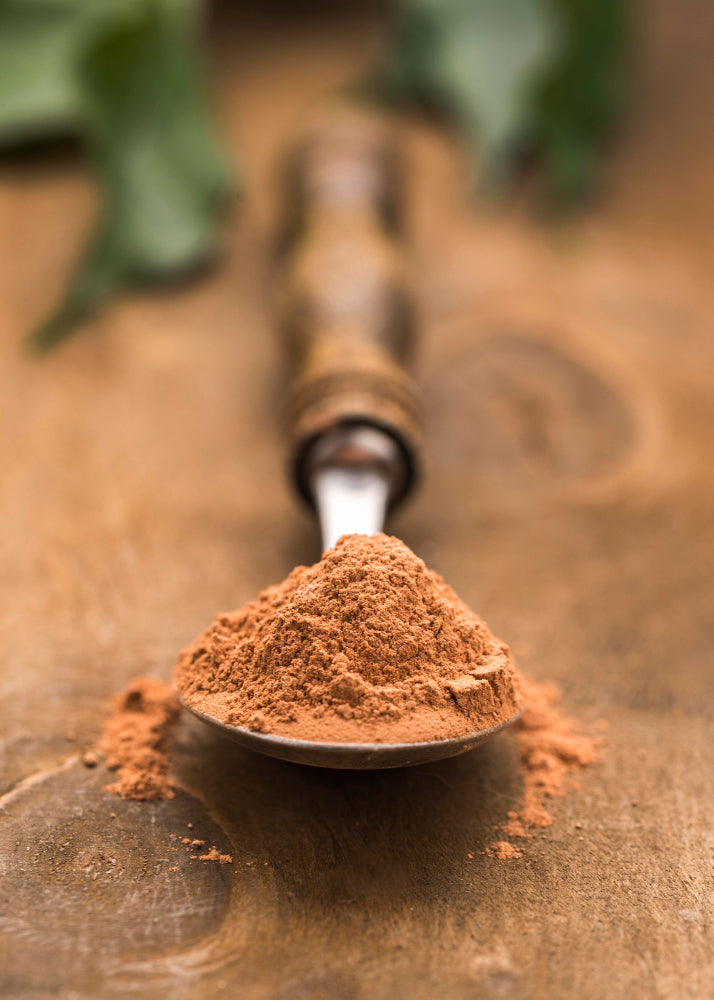The Best Baobab Benefits: Why You Should Add Baobab to Your Diet
When I first encountered baobab powder at a local health food store three years ago, I was intrigued but skeptical. Another superfood claiming extraordinary benefits? I decided to research it thoroughly before adding it to my morning smoothies—and what I discovered genuinely surprised me. Not only does baobab have a fascinating history spanning thousands of years across African cultures, but the scientific evidence backing its nutritional profile is remarkably solid.
After incorporating baobab into my daily routine for over two years now, I've experienced noticeable improvements in my digestion and energy levels. But the benefits of this extraordinary fruit extend far beyond my personal experience. Let me share what makes baobab truly special and why you might want to consider adding it to your diet.
Introduction to Baobab
The baobab (pronounced bay-oh-bab) comes from the baobab tree, often called the "Tree of Life" or "Upside-Down Tree" because its bare branches resemble roots reaching toward the sky. These magnificent trees can live for over 2,000 years and grow primarily in Africa, Madagascar, and Australia.
What makes baobab particularly special is its fruit—a large pod with a powdery pulp that naturally dehydrates while still on the tree. This unique process preserves the nutrients without requiring any processing, making baobab one of the few fruits that becomes a shelf-stable powder naturally.
The taste is pleasantly tangy with subtle sweet notes, reminiscent of a blend between citrus and pear. This distinctive flavor profile makes it versatile for culinary applications, from smoothies and desserts to savory dishes.
Historically, baobab has been an important food source and traditional medicine in many African cultures. Communities have used the leaves, bark, seeds, and baobab fruit benefits to treat various ailments, from fevers and digestive issues to vitamin C deficiency. This traditional knowledge has sparked modern scientific interest, leading to studies that validate many of these ancestral practices.
What struck me most when learning about baobab was its sustainability. Harvesting the fruit doesn't damage the trees, and increased demand creates economic opportunities for rural African communities. The growing popularity of baobab represents a rare win-win scenario—good for consumers' health and beneficial for both the environment and local economies.
Baobab Nutrition
The nutritional profile of baobab is nothing short of impressive. After analyzing numerous scientific studies, I was amazed to discover why this fruit's high vitamin c content deserves its "superfood" status.
First and foremost, baobab is an exceptional source of vitamin C, containing approximately 7-10 times more than oranges by weight. Just two tablespoons of baobab powder can provide about 40% of your daily vitamin C requirement. As someone who struggles with frequent winter colds, I've found this particularly beneficial during the challenging months.
Beyond vitamin C, baobab's mineral content is remarkable:
- High in potassium, which supports healthy blood pressure
- Rich in calcium, providing bone support
- Contains significant amounts of magnesium, essential for muscle function
- Provides iron, critical for oxygen transport and energy
What truly sets baobab apart nutritionally is its fiber content. With nearly 50% of its composition being soluble fibre, it supports digestive health and provides prebiotic benefits. This fiber content also gives baobab a low glycemic index, meaning it doesn't cause rapid blood sugar spikes.
Additionally, baobab contains an impressive array of bioactive compounds, including polyphenols and flavonoids. These compounds help neutralize free radicals in the body, potentially reducing oxidative stress and inflammation—key factors in preventing chronic diseases.
The macronutrient breakdown is equally appealing, especially for those monitoring carbohydrate intake. Despite its sweet-tart flavor, baobab is relatively low in sugar while providing a high vitamin amount of protein. This makes it suitable for various dietary approaches, from plant-based to low-carb.
Perhaps most importantly, baobab delivers these nutrients in a highly bioavailable form. Because it's minimally processed and naturally dried, the nutrients remain intact and are easily absorbed by the body. This stands in stark contrast to many synthetic supplements that may pass through the digestive system without proper absorption.

Digestive Health
Of all the benefits I've experienced from baobab, improvements in digestive health have been the most noticeable. The science behind this is compelling and multifaceted.
Baobab's exceptional fiber content—both soluble and insoluble—supports digestive health in several ways. The soluble fiber acts as a prebiotic, nourishing beneficial gut bacteria and promoting a healthy microbiome. Since incorporating baobab into my diet, I've noticed more regular digestion and less bloating after meals.
Studies have shown that baobab can significantly increase the populations of Lactobacilli and Bifidobacteria—beneficial bacteria that play crucial roles in gut health and immune function. This prebiotic effect may explain why traditional African medicine has long used baobab for digestive complaints.
The fiber in baobab also contributes to healthy bowel movements by adding bulk to stool and supporting regular elimination. For those struggling with constipation, adding baobab to the diet can provide gentle relief without the harsh effects of laxatives.
Additionally, baobab contains natural enzymes that may aid in the breakdown of food, potentially reducing digestive discomfort after meals. I've personally found that adding a tablespoon to my breakfast smoothie helps prevent the mid-morning bloating I used to experience regularly.
Interestingly, research suggests that baobab may have a positive effect on the gut-brain axis—the biochemical signaling between the gastrointestinal tract and the central nervous system. A healthy gut microbiome fostered by prebiotic foods like baobab can potentially influence mood and cognitive function through this connection.
For those with sensitive digestion, it's worth noting that baobab is naturally free from common allergens like gluten, dairy, and nuts, which may help control blood sugar levels . It's also low in FODMAPs (fermentable oligosaccharides, disaccharides, monosaccharides, and polyols), making it suitable for many people with irritable bowel syndrome (IBS).

Immune System Support
In today's health-conscious world, immune support has become a priority for many—myself included. Baobab offers significant benefits in this area through multiple mechanisms.
The extraordinary vitamin C content in baobab plays a central role in immune function. Vitamin C supports various cellular functions of the immune system, enhances the production of white blood cells, and acts as a powerful antioxidant to protect cells from damage.
During cold and flu season, I've made it a habit to increase my baobab intake, adding it to my morning routine and afternoon tea. While I can't claim it's prevented all illnesses, I've certainly noticed fewer respiratory infections since making this adjustment.
Beyond vitamin C, baobab contains other immune-supporting nutrients, including zinc, which plays a crucial role in immune cell development and communication. The antioxidants in baobab help combat oxidative stress, which can weaken immune function when left unchecked.
Research suggests that the polyphenols in baobab may have antimicrobial properties, potentially helping the body defend against certain pathogens. Traditional use of baobab in African medicine for treating infections may have scientific validity based on these findings.
Perhaps most interestingly, the prebiotic effects of baobab fiber support gut health, which is increasingly recognized as fundamental to immune function. With approximately 70% of the immune system residing in the gut, nurturing a healthy microbiome with prebiotic foods like baobab creates a foundation for robust immune responses.

Energy and Vitality
The modern struggle with fatigue and energy fluctuations is something I've personally battled, especially during busy work periods. Adding baobab to my diet has contributed to more sustained energy levels throughout the day, and the science explains why.
Baobab supports energy production through several pathways:
- Iron content: Baobab provides non-heme iron, which helps combat fatigue associated with low iron levels. The vitamin C in baobab enhances iron absorption, making it particularly effective for those at risk of iron deficiency.
- B vitamins: Baobab contains several B vitamins, including thiamine (B1) and riboflavin (B2), which play essential roles in energy metabolism.
- Blood sugar regulation: The high fiber content in baobab slows the absorption of sugars, helping to prevent the energy crashes that follow blood sugar spikes. I've found this particularly helpful in maintaining afternoon energy levels.
- Magnesium: Baobab's magnesium content supports cellular energy production and helps combat the fatigue associated with magnesium deficiency, which is surprisingly common in Western populations.
Athletes and fitness enthusiasts have begun incorporating baobab into their pre-workout routines for sustained energy without the jitters associated with caffeine or artificial stimulants. The natural carbohydrates combined with fiber provide a steady release of energy during endurance activities.
Even more promising, preliminary research suggests that baobab may have adaptogenic properties, helping the body respond more effectively to stress. While more studies are needed in this area, traditional use patterns in African cultures support this potential benefit.
Blood Sugar Management
Maintaining stable blood sugar levels is crucial for overall health, energy, and preventing chronic diseases. Baobab offers significant benefits to manage blood sugar levels—a quality I've come to appreciate as someone with a family history of type 2 diabetes.
Several clinical studies have demonstrated baobab's positive effects on glycemic response. One study showed that consuming baobab extract with high-carbohydrate foods reduced the glycemic response by up to 33%. This effect is primarily attributed to baobab's soluble fiber content, which helps regulate blood glucose response by slowing the absorption of sugars into the bloodstream.
The polyphenols in baobab may also play a role in blood sugar regulation by inhibiting certain enzymes involved in carbohydrate digestion. This mechanism is similar to some anti-diabetic medications, though certainly less potent, and can positively affect blood glucose levels .
Additionally, baobab's high chromium content supports insulin function. Chromium is a trace mineral that enhances the action of insulin and helps the body absorb iron, improving glucose tolerance—particularly beneficial for those with insulin resistance.
I've incorporated baobab into my post-meal routine, especially after carbohydrate-rich meals. Adding a teaspoon to a small glass of water creates a refreshing, tangy drink that seems to prevent the afternoon energy slump I used to experience after lunch.
For those monitoring their blood sugar levels, it's worth noting that baobab powder has a low glycemic index itself, making it a suitable addition to diabetic-friendly diets. However, as with any supplement, those on medication for diabetes should consult their healthcare provider, as baobab may enhance the effects of certain medications.

Heart Health
Cardiovascular health concerns touch most families, including my own. The potential heart benefits of baobab are supported by both traditional knowledge and emerging research.
Baobab supports heart health through multiple mechanisms:
- Potassium content: Baobab is rich in potassium, which helps maintain healthy blood pressure by balancing the effects of sodium and supporting proper muscle function, including the heart muscle.
- Antioxidant protection: The antioxidants in baobab, particularly procyanidins and flavonoids, help protect the heart and blood vessels from oxidative damage, a key factor in cardiovascular disease development.
- Cholesterol management: Preliminary studies suggest that baobab fiber may help reduce LDL ("bad") cholesterol levels while maintaining HDL ("good") cholesterol. The pectin in baobab is similar to that found in apples, which has been well-studied for its cholesterol-lowering effects.
- Anti-inflammatory properties: Chronic inflammation contributes significantly to heart disease. Baobab's anti-inflammatory compounds may help reduce this risk factor.
- Blood sugar regulation: By supporting healthy blood sugar levels, baobab indirectly benefits heart health, as diabetes and insulin resistance are major risk factors for cardiovascular disease.
Traditional communities that regularly consume baobab typically show lower rates of cardiovascular disease, though many factors contribute to this epidemiological observation. Modern research is beginning to validate these traditional patterns with controlled studies examining specific cardiovascular markers.

Skin Health and Anti-Aging
The connection between nutrition and skin health has become increasingly clear in recent years. Baobab offers impressive benefits for skin vitality and may help combat signs of aging from the inside out.
The extraordinary vitamin C content in baobab plays a central role in collagen production—the protein that provides structure and elasticity to the skin. As we age, collagen production naturally decreases, leading to wrinkles and sagging. Supporting collagen synthesis through adequate vitamin C intake can help maintain skin firmness.
Beyond vitamin C, baobab contains other skin-supporting nutrients:
- Antioxidants: The polyphenols in baobab help neutralize free radicals that contribute to premature skin aging.
- Vitamin E: This fat-soluble vitamin protects skin cell membranes and works synergistically with vitamin C.
- Essential fatty acids: Baobab seeds contain omega-3 and omega-6 fatty acids that support the skin's moisture barrier.
The anti-inflammatory properties of baobab may also benefit those with inflammatory skin conditions like acne or eczema. While not a replacement for dermatological treatment, adding baobab to an anti-inflammatory diet may provide additional support.
Many natural skincare products now incorporate baobab oil, extracted from the seeds, for its moisturizing and regenerative properties. However, the benefits of consuming baobab work from the inside out, potentially providing more comprehensive skin support.
Weight Management Support
Maintaining a healthy weight is about more than aesthetics—it's fundamental to overall health and longevity. Baobab offers several properties that can support healthy weight management as part of a balanced diet and active lifestyle.
The high fiber content in baobab promotes satiety—that feeling of fullness that helps prevent overeating. Just a tablespoon of baobab powder contains around 4-5 grams of fiber, which expands in the stomach and slows digestion, potentially reducing overall calorie intake.
Beyond creating physical fullness, baobab may influence hunger hormones. Preliminary research suggests that the polyphenols in baobab could help regulate leptin and ghrelin—hormones that control hunger and satiety signals.
The blood sugar-stabilizing effects of baobab also support weight management. By preventing dramatic blood sugar fluctuations, baobab may help reduce cravings and energy crashes that often lead to unhealthy snacking.
Some studies suggest that the polyphenols in baobab may influence fat metabolism and reduce fat absorption. While these effects are modest, they contribute to the overall weight management benefits of this superfruit.
I've found that adding baobab to my morning routine helps me maintain steady energy and reduces mid-morning hunger pangs. This simple addition has made intermittent fasting easier and more sustainable for me personally.
How to Use Baobab in Your Diet
Incorporating baobab into your daily routine is surprisingly easy due to its versatile nature and pleasant taste. Here are some practical ways I've integrated baobab into my diet:
Morning Smoothies: Add 1-2 tablespoons to your favorite smoothie recipe. It pairs particularly well with banana, mango, and berries.
Yogurt Topping: Sprinkle a tablespoon over yogurt with some berries and nuts for a nutrient-dense breakfast or snack.
Oatmeal Enhancement: Stir into morning oatmeal along with a drizzle of honey for a nutritional boost.
Refreshing Drinks: Mix a teaspoon into water with a squeeze of lemon for a vitamin C-rich beverage. I find this especially refreshing during hot weather or after exercise.
Baking Addition: Substitute 1-2 tablespoons for an equal amount of flour in muffins, pancakes, or bread recipes. This adds nutrition and a subtle tangy flavor.
Salad Dressings: Whisk a teaspoon into homemade vinaigrettes for a citrusy note and additional nutrients.
Energy Balls: Add to homemade energy balls with dates, nuts, and seeds for a portable, nutritious snack.
Dessert Enhancement: Sprinkle over fruit salads or add to chia pudding for extra flavor and nutritional value.
For those new to baobab, I recommend starting with 1-2 teaspoons daily and gradually increasing to 1-2 tablespoons. As with any fiber-rich food, introducing it gradually helps prevent potential digestive discomfort while your system adjusts.
Conclusion: Is Baobab Right for You?
After two years of personal use and extensive research, I believe baobab deserves consideration in most wellness routines. Its remarkable nutritional profile, digestive benefits, and potential support for various body systems make it a valuable addition to a balanced diet.
What particularly impresses me about baobab is its sustainability and ethical sourcing. When purchasing baobab products, look for those that support fair trade practices and sustainable harvesting, ensuring both environmental protection and fair compensation for local communities.
While baobab offers numerous benefits, it's important to remember that it's not a miracle cure. It works best as part of a holistic approach to health that includes a varied diet, regular physical activity, adequate sleep, and stress management.
If you're pregnant, breastfeeding, or taking medications, it's wise to consult with a healthcare provider before adding any new supplement to your routine. For most healthy adults, however, baobab represents a safe, natural way to enhance nutrition and support overall wellness.
Have you tried baobab? I'd love to hear about your experiences and creative ways you've incorporated this remarkable superfruit into your diet. Share your thoughts and questions in the comments below!










